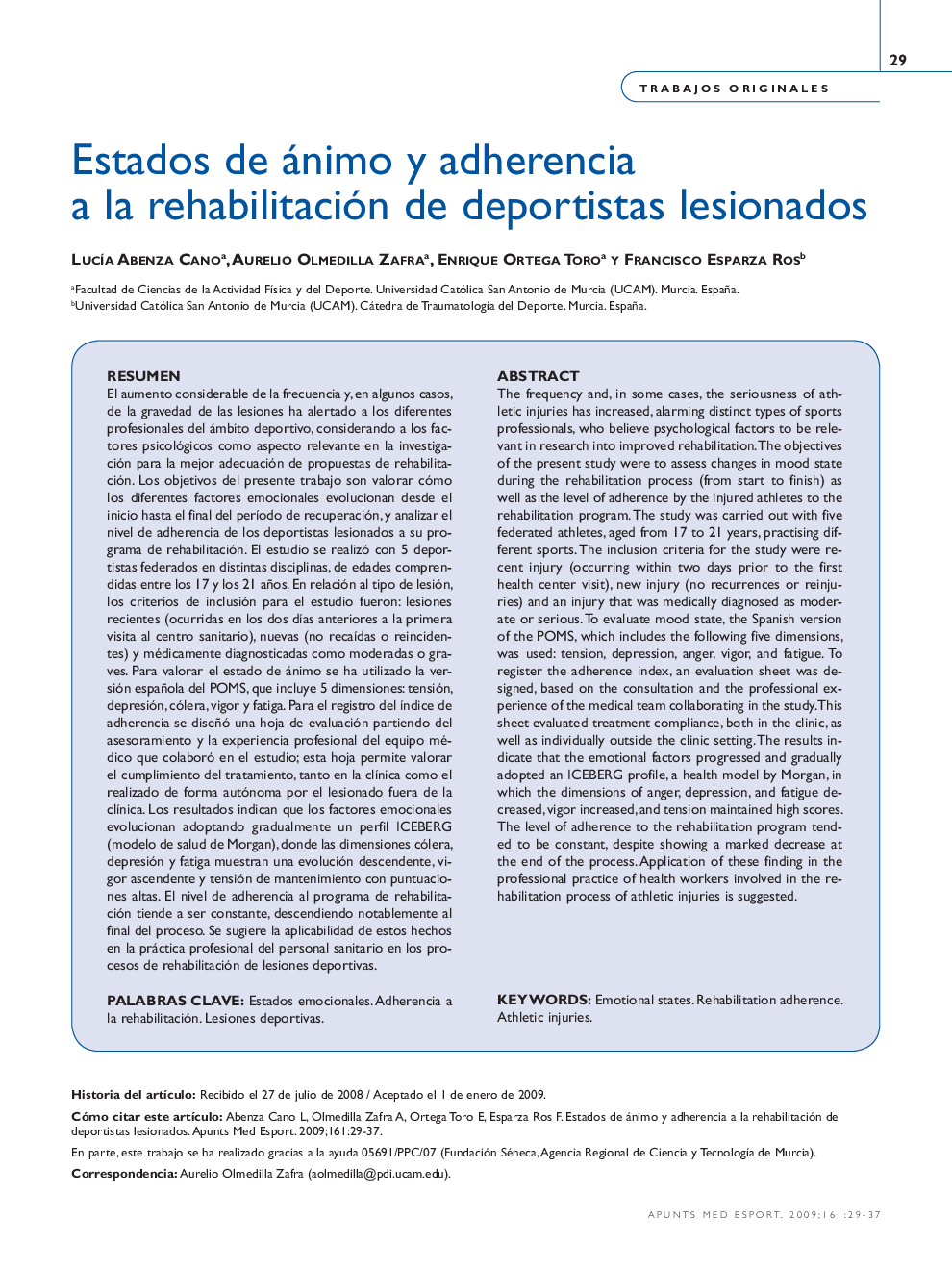| Article ID | Journal | Published Year | Pages | File Type |
|---|---|---|---|---|
| 2739382 | Apunts. Medicina de l'Esport | 2009 | 9 Pages |
Abstract
The frequency and, in some cases, the seriousness of athletic injuries has increased, alarming distinct types of sports professionals, who believe psychological factors to be relevant in research into improved rehabilitation. The objectives of the present study were to assess changes in mood state during the rehabilitation process (from start to finish) as well as the level of adherence by the injured athletes to the rehabilitation program. The study was carried out with five federated athletes, aged from 17 to 21 years, practising different sports. The inclusion criteria for the study were recent injury (occurring within two days prior to the first health center visit), new injury (no recurrences or reinjuries) and an injury that was medically diagnosed as moderate or serious. To evaluate mood state, the Spanish version of the POMS, which includes the following five dimensions, was used: tension, depression, anger, vigor, and fatigue. To register the adherence index, an evaluation sheet was designed, based on the consultation and the professional experience of the medical team collaborating in the study. This sheet evaluated treatment compliance, both in the clinic, as well as individually outside the clinic setting. The results indicate that the emotional factors progressed and gradually adopted an ICEBERG profile, a health model by Morgan, in which the dimensions of anger, depression, and fatigue decreased, vigor increased, and tension maintained high scores. The level of adherence to the rehabilitation program tended to be constant, despite showing a marked decrease at the end of the process. Application of these finding in the professional practice of health workers involved in the rehabilitation process of athletic injuries is suggested.
Related Topics
Health Sciences
Medicine and Dentistry
Orthopedics, Sports Medicine and Rehabilitation
Authors
LucÃa Abenza Cano, Aurelio Olmedilla Zafra, Enrique Ortega Toro, Francisco Esparza Ros,
